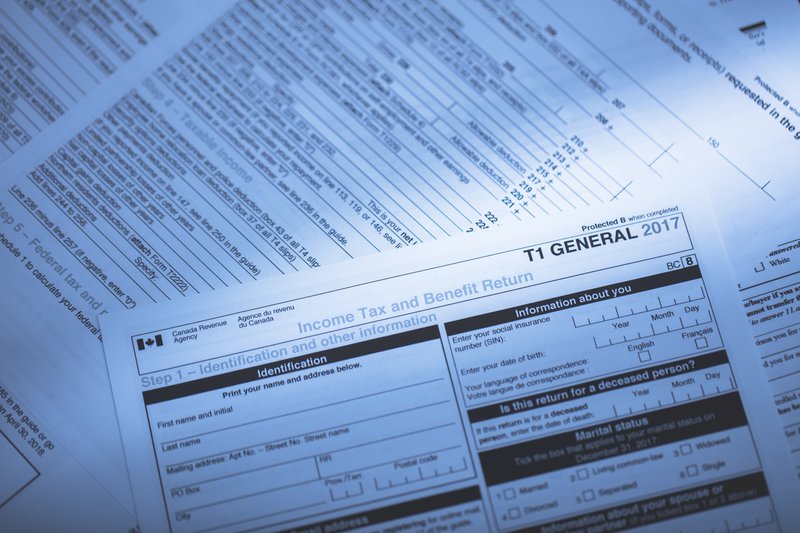
Brenda Bouw
Nov. 2, 2020
Being audited by the Canada Revenue Agency (CRA) is never a fun ordeal, but advisors can play an important role in helping their clients get through the process as stress-free as possible.
In fact, that role could become more prominent for advisors as a recent C.D. Howe Institute paper says the CRA could come under pressure to raise additional revenue through aggressive tax audits to help pay for the lower tax revenue and relief measures resulting from the COVID-19 crisis.

Although the authors of the C.D. Howe paper say “governments should resist the urge to ... [call] upon [the] CRA to simply raise more revenue by more aggressive enforcement,” the reality is that all taxpayers, both individuals and businesses, may be subject to an audit at any time.
Some taxpayers are selected randomly for an audit while others might be audited if there’s a discrepancy between what they report on their tax returns and the paperwork the government has, such as a T4. The CRA also conducts “risk-based audits” on taxpayers who have a history of making mistakes on their tax returns, or other red flags. In some years, the CRA may conduct audits on a particular area, such as moving costs or real estate transactions.
“The majority of people never get audited, but everybody is at risk of being audited,” says Rona Birenbaum, founder and certified financial planner at Caring for Clients, a fee-for-service financial planning firm in Toronto.
“The advisor’s most important role [here] is ensuring that their clients’ affairs are organized, that they keep good records, that they take the tax regulations seriously and that they understand the risks and ramifications of not complying with CRA rules.”
She says advisors should help clients be prepared for a potential audit “so that the only thought that goes through their mind [if they get an audit notice] is, ‘I’m going to have to pay more accounting fees and this is going to take some time,’ but that’s it.”
Tannis Dawson, vice-president of high-net-worth and business succession planning at TD Wealth Advisory Services in Winnipeg, says the CRA is already doing preliminary audits on some of the federal government’s pandemic-relief programs to ensure those receiving benefits qualify.
“[The CRA] calls these ‘small-scale audits,’ but it’s asking for a lot of information,” she says. “As we know with any audit, even if you’ve done nothing wrong, it can take a lot of work to prove [you haven’t].”
For example, the CRA has begun auditing recipients of the Canada Emergency Wage Subsidy (CEWS) and asking for detailed information on items such as revenue, salaries and employment contracts.
The CRA is also looking into personal benefits received such as the recently expired Canada Emergency Response Benefit (CERB), for employees who lost work because of the COVID-19 business closings.
“It’s a huge amount of money the government handed out quickly, so it’s going to want to make sure the right people receive it,” Ms. Dawson says of the CEWS, the CERB and other pandemic-relief programs for businesses and individuals.
She says advisors can help clients figure out if they qualify for any of the programs, and what documentation they may need to back it up.
“If you have your paperwork in order, it’s easier and smoother for the audit,” Ms. Dawson says.
And while accountants are largely responsible for helping clients with tax matters, Ms. Dawson says advisors should be involved in the broader financial management plan.
“If an advisor doesn’t know the client’s accountant, it’s a great time to reach out and work as a team,” she says. “It’s in the client’s best interest.”
Jamie Golombek, managing director, tax and estate planning, at Canadian Imperial Bank of Commerce in Toronto, says it’s largely up to accountants to work with businesses audited by the CRA, but advisors can play a key role in personal audits.
For example, he says advisors can help clients access information the CRA might need to justify a capital gain or loss on the sale of an investment, any contributions they made to a tax-free savings account or registered retirement saving plan, or any investment income or foreign assets valued at more than $100,000.
Furthermore, he says advisors should work with clients to make sure the gains are being calculated and reported properly.
“Now that everything is moving to digital record keeping, digital forms and digital tax slips. It should be very easy for advisors to be able to access that information … if a client does get audited by the CRA,” Mr. Golombek says.
“Advisors can add a lot of value by being proactive,” he adds. “And if they’re aware of clients getting government benefits [related to the pandemic] … it’s a chance to remind [these clients] of the rules.”
Ms. Birenbaum says advisors can also help clients through an audit by translating any technical tax jargon and putting it into plain language that will help them work through the process.
“We bridge that gap at all times, but it’s especially valuable during an audit,” she says.
Advisors can also provide moral support, particularly if a client is “catastrophizing” an audit, Ms. Birenbaum says.
“A financial planner can identify what appears to be the maximum downside of a situation objectively and do a sensitivity analysis of how impactful it will be, and the go-forward plan ... and then, of course, there are the most probable outcomes,” she says, which might mean reaching out to some accountants for information that can help their client.
“That said, the biggest value might just be keeping a client calm and supporting them through the process,” Ms. Birenbaum says.
This Globe and Mail article was legally licensed by AdvisorStream.
© Copyright 2025 The Globe and Mail Inc. All rights reserved.


